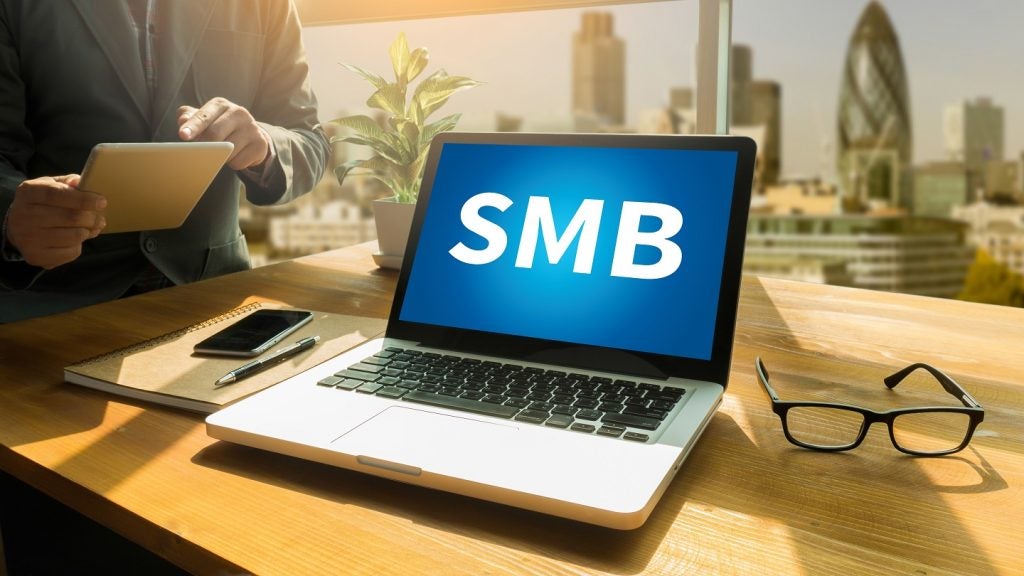
While many asset sectors in Europe are still struggling in a weak economic environment, lessors have found that the ubiquitous nature of IT in modern business has shielded the market from too much harm, as Peter Johnstone discovers.
Over the past two decades, software, hardware, and IT services have all become integral parts of any business, with the pace of innovation meaning companies need to renew their systems regularly.
While assets such as construction and manufacturing equipment or other office equipment may have suffered due to declining business and tighter budgets, IT financing has remained a necessity for SMEs and big corporates alike.
Jörg Eicker, chief financial officer at Grenkeleasing, supports this view, with the markets for financing cars, aeroplanes, and bigger industrial goods "shrinking".
These assets, he says, "are more influenced by the economic cycle", whereas IT leasing "is quite independent from the economic environment and the business cycles in different countries."
"A photocopying machine, a notebook, a PC, you need this kind of product for your daily business.
How well do you really know your competitors?
Access the most comprehensive Company Profiles on the market, powered by GlobalData. Save hours of research. Gain competitive edge.

Thank you!
Your download email will arrive shortly
Not ready to buy yet? Download a free sample
We are confident about the unique quality of our Company Profiles. However, we want you to make the most beneficial decision for your business, so we offer a free sample that you can download by submitting the below form
By GlobalData"Maybe it’s a question of postponing a new investment, but a leasing contract will expire. Our average leasing contract has a maturity of four years, and after these four years you definitely need a PC."
Ajay Khindria, director at IBM Global Financing (IGF), says that while companies still need IT, "one of the things we’ve seen is a lot of clients holding back a while longer on deploying new technology."
However, he adds, "they can only hold back for so long. If they don’t invest, if they don’t remain competitive, if they don’t differentiate, they’re going to struggle."
Olivier Deliere, sales and operation manager at Société Générale Equipment Finance (SGEF), also believes that IT financing is a dependable source of revenue. He describes such assets as "completely key for the life of the whole enterprise".
He says there is a risk as IT assets, especially software, have a remarketing value of "close to nil".
However SGEF sees that very rarely: "It’s very unlikely that we have a customer saying, ‘OK, you can repossess your equipment, I can’t afford to pay any longer’.
"All of the customers who are in bad situations are managing to get some cash to pay us. So it is a very good market for IT lessors and IT vendor finance."
Deliere says while IT financing is strong in Western Europe, Eastern Europe is not quite as favourable, with its legacy of construction and manufacturing meaning those are more viable sectors for lessors.
"For example," he says "our penetration of IT in our business for SGEF Poland is roughly 35%, which is rather good, because if you consider the numbers from the Polish leasing associations, IT leasing is very, very low.
"These kinds of markets are not completely mature in terms of IT financing."
Eicker says the European market as a whole is providing good business for IT financing specialists such as Grenkeleasing, especially when focusing on small-ticket deals.
He attributes this to the residual effects of the sovereign crisis in the eurozone, as well as Basel III regulation, which is making it less attractive for banks to lend money.
"This means SMEs are finding it hard to finance IT equipment through banks, so for the leasing companies, for Grenkeleasing, this is now a good sign because if you are doing the business in an automatic way and if you are cost efficient you can be more competitive than banks or leasing companies," he says.
"There are a lot of countries and governments in the eurozone which have huge budget problems, so a lot of banks have to shrink to strengthen their balance sheet.
"And a lot of banks just disappeared from the IT leasing business or closed down the business due to the fact that they’re not cost efficient enough."
Khindria holds an opposing view, saying that more financiers are entering the market "with some very competitive offers" which are "rubbing off on the industry".
However, he believes that his company is "unique" because it "understands the technology industry."
Because of this, IGF "can put in place things like fair market value leases. So we’ll take a risk on the residual and potentially reduce the overall cost for the client," he says.
Innovation is key
While the necessity of IT to modern businesses is helping to keep the market buoyant, innovation is the dynamo that is driving further growth, with new technology constantly in development.
SGEF’s Deliere reflects that, in his 20 years in IT leasing, the market has changed "dramatically".
Back then, IT financing was "80% hardware financing; now it’s much more software financing. My main vendor programmes are within software – additions, programmes, processes and systems," he says.
Eicker has also seen a lot of change, with IT evolving from rarity to ubiquity.
"Twenty years ago, when I started on a trading floor in a bank, IT was not so very frequent. PCs were not involved. Telex or fax machines were more or less the communication platform."
"A family had maybe just one PC; now more or less everybody in the family has a PC and in the next couple of years it’s getting more important not only to have the PC, but also a network in place, a smartphone and tablets."
"Years ago everybody thought the industry would stop, or the growth would stop.
"I’m sure that it will increase in the next couple of years. Maybe not as much as in the last years, but it depends on the technology, it depends on the innovation power of these kind of products."
"If you look to a smartphone, five years ago everybody thought that the mobile industry was more or less at the end of a cycle, but now suddenly a new system was established, and a new revolution because the iPhone came up."
While Eicker cites the iPhone as an example of possible change and innovation within the industry, he says smartphone technology is not an important part of Grenke’s business strategy, as low values and service provider contracts mean people rarely need finance.
The same could be said of other smart technology, although some businesses are investing in them.
"Whether you lease a tablet depends on the situation and what kind of business you want to use it for. You may want to use the tablet in an integrated structure, in combination with a notebook with a PC and with a printer in a network," says Eicker.
"If some people are leasing infrastructure – a combination of various products – it’s then that the tablet becomes important."
SGEF’s Deliere agrees that smart technology is "a bit tricky" because "the technological obsolescence of these kinds of products is very fast".
Any deal on these products, he says, would be "on a short-term period, roughly two years and maybe less". However, SGEF is seeing these assets are "improving a lot within the corporate" world.
They’re "very strong in some places", however a lot of big companies "are much more in acquisition mode for the time being rather than leasing mode."
Cloud computing
One innovation that highlights the move away from hardware more than any other is the development of cloud computing, although the implications for finance providers remain as yet unclear.
Cloud computing is a big development area for IBM. Right now, says Khindria, IGF is talking with a lot of companies providing cloud services to consumers and companies. These companies, he says, need "hardware, software and applications, and they need development put around it.
"But for the hardware and software upfront investment could be quite significant."
Eicker is a little sceptical: "A key question – is this really important? – do people really need this cloud computing?"
He says it seems a hot topic, but there are still questions over security with data stored offsite on other people’s servers.
"If you are a [SME] who’s developing a new product, do you want to have all your database externally, with a different provider, or do you just want to pay a bit more and have all your database and your storage internally, in-house."
While Eicker remains uncertain of future trends for cloud computing, he will be monitoring it carefully. Meanwhile, the company, which lends primarily to the small-ticket SME market, remains focused on hardware, which will remain a necessity for access to data.
Deliere also seems wary of cloud computing, but says SGEF is already working on two "big contracts".
"Cloud computing is very up to date, very ‘in’, because everyone’s talking about it, but there are some concerns in the structure of the assets."
"When you are considering cloud computing financing, at the very start of the contract you don’t really know how big it will be in one, two or three years, so we have to bring a lot of flexibility into that structure."
Moving away from hardware
All three companies have seen a slow move away from simple hardware leasing to a more holistic version of IT financing.
While Grenke remains mostly hardware focused, it still provides contracts including software and services, usually with a partner company providing the support.
Deliere says SGEF "should emphasise and focus on the need to bring added-value financing solutions to cloud computing and on-demand models", as "the time where we were financing tons and tons of hardware stuff in a row is completely over".
So while IT will always be needed by businesses and individuals, the market is still evolving.
Lessors are seeing a shift away from traditional, hard asset leasing, but can’t yet predict the future direction of the market.
As Deliere says, there are always new concerns, "so if you call me back in three months I am quite sure I will discover more."







